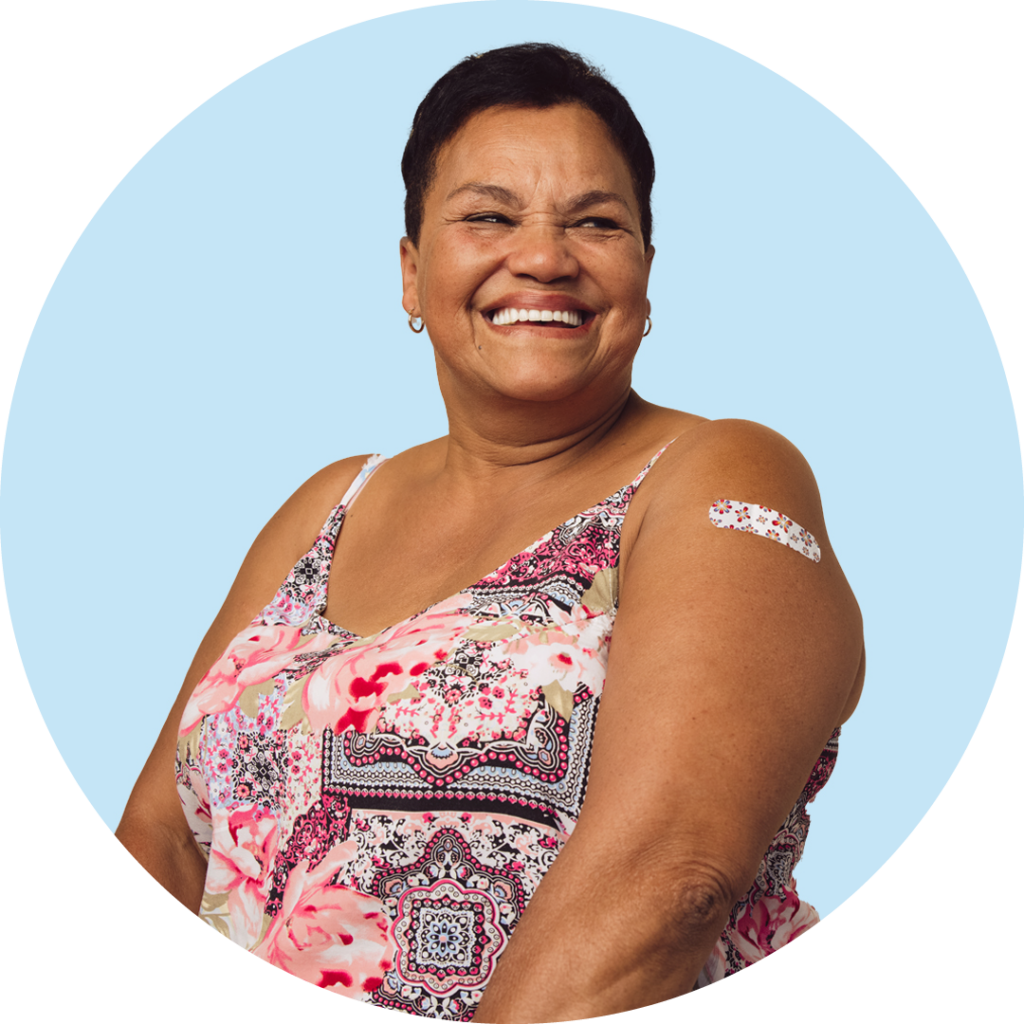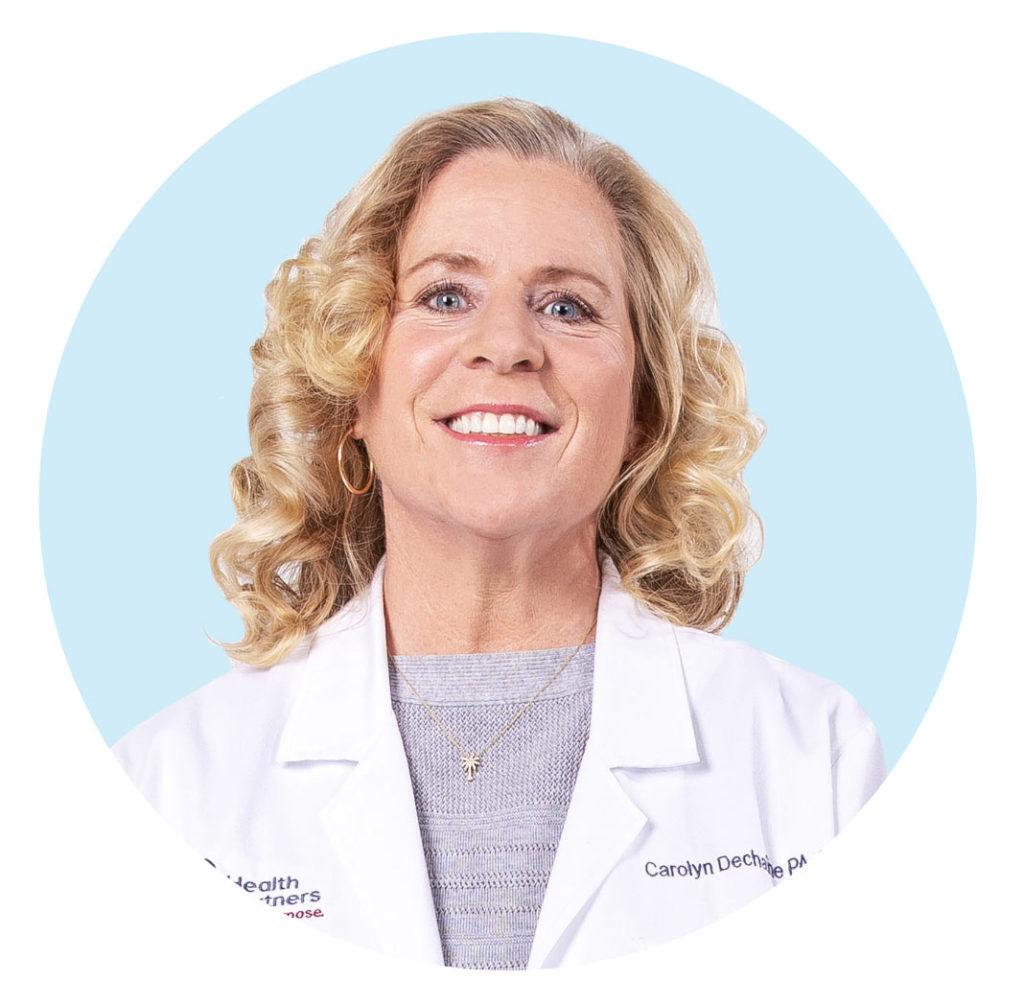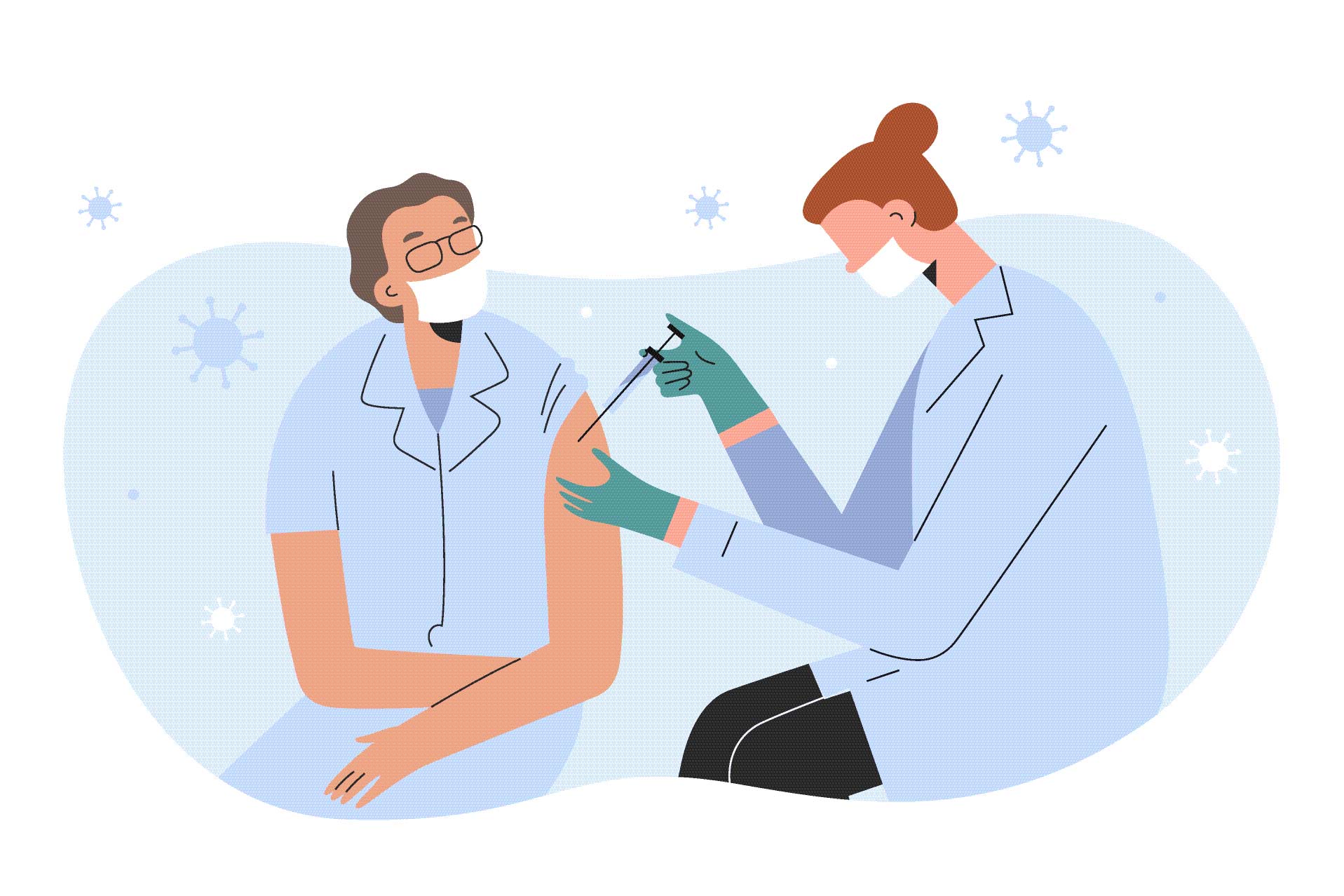Stay well by choice, not by chance.
Learn about the flu vaccine and
other important vaccines for seniors that are covered by Medicare.

Flu season 2022: how worried should you be?
We are projecting this flu season to be much more severe which poses a greater threat when combined with COVID-19. Some are calling this a “twindemic” – a wave of influenza (flu) and a COVID-19, which are set to strike at the same time.
Last year, with lockdowns, masking and social distancing we had historically low rates of influenza and other respiratory virus transmissions. This year, we’re expecting a severe flu season partly because people have not been exposed to influenza.
Understanding your risk.
The flu is a contagious respiratory illness with symptoms that typically have an abrupt onset and often include fever, chills, headache, fatigue, body aches, cough, sore throat and a runny or stuffy nose. It can travel six feet as airborne particles and can live for 24 hours on hard surfaces. Healthy adults can infect other people up to seven days after becoming sick.
Most people with the flu do not require medical care but some people are at a higher risk of developing serious flu-related complications. This includes people 65 years and older, children younger than 5 years of age, people with certain chronic medical conditions, such as chronic lung disease or diabetes and pregnant women.
In a time where everyone is concerned with staying safe, what better way to be proactive about your health than getting a flu vaccination?
Here's are five things you need to know about the flu.

Influenza is severe and unpredictable. Vaccination reduces the risk of influenza complications.

People living with diabetes are three times more likely to be hospitalized with influenza.

If you are 65 years or older, you are six times more likely to have a heart attack the week after being diagnosed with influenza.

126,000+ adults 65 years and older are hospitalized with flu related illness each year.

90 percent of flu related deaths occur in people 65 years or older.
How soon does a flu shot become effective?
The vaccine takes six months to create and it is made each year to try and match the circulating global virus. Starting treatment early on can alleviate some symptoms and shorten the length of the illness. This can also prevent it from leading to more serious complications including pneumonia, bacterial infections and hospitalizations. This year it is more important than ever to take control of your health.
Where to get my flu shot?
Schedule your flu shot with your primary care provider or local pharmacy.
If you ‘re a P3 Medical Group patient residing in Nevada schedule an appointment below or call us at (702) 333-4700.

COVID-19.
While the flu vaccine cannot prevent COVID-19, it can protect you from complications if you do become infected with coronavirus. Even though it’s a different virus, the flu vaccine will still be a key factor in keeping you healthy.
Understanding your risk.
Seniors are at the highest risk of getting very sick from COVID-19. More than 81% of COVID-19 deaths occur in people over age 65.
A person’s risk of severe illness from COVID-19 increases as the number of underlying medical conditions they have increases. Some of these underlying medical conditions include:
• COPD
• Diabetes
• Chronic Kidney Disease
• Heart Disease
To see the full list of underlying medical conditions click here.
Considering 80% of people age 65 and older have at least one chronic health condition and nearly 68% have two or more. Many seniors are at high risk of getting very sick from COVID-19.
Other factors such as access to healthcare, where a person resides or occupation could increases someone risk.
This includes many people from racial and ethnic minority groups and people with disabilities.
Based on the current evidence, a person with any of the conditions listed above is more likely to get very sick from COVID-19. This means that a person with one or more of these conditions who gets very sick from COVID-19 (has severe illness from COVID-19) is more likely to:
- Be hospitalized
- Need intensive care
- Require a ventilator to help them breathe
- Die
COVID-19 vaccines and boosters.
In addition to the first and second round of COVID-19 vaccinations, the CDC recommends that seniors continue to receive their booster shots when eligible to increase their protection from severe COVID-19 illness.

Other vaccines for seniors.
Many people think vaccines are only for children, but adults should get regularly vaccinated to protect themselves and loved ones from serious diseases. Below is a list of recommended vaccines that every adult should receive, along with information about each one.
Shingles
Shingles, or herpes zoster, is a painful skin rash that occurs when the chicken pox virus in your body is reactivated. The cause of this reactivation is unknown, but anyone who has had chickenpox is at risk for shingles.
Getting the chickenpox vaccine as a child or getting the shingles vaccine as an adult can decrease your chances of developing shingles.
Pneumonia
Pneumonia symptoms include a phlegm cough, high fever, sweating, shortness of breath and fatigue. As we age, the risk for pneumonia increases because our immunity response decreases. Those more at risk may have COPD, CHF, DM, Asplenia, immunocompromised disorder. The newest vaccine for pneumonia is Prevnar 13 and 23.
DTap
Diphtheria, tetanus and pertussis immunizations come in an all-in-one vaccine known as DTaP.
Which vaccines are covered by Medicare?
Do you know which vaccines are covered by Medicare? Take our quiz to find out.
Meet our care team.
Patients are at the center of our care model.
Our dedicated care management team takes the time to understand your comprehensive needs. Bridging the gap between your physician and your busy lives, we offer health education on preventing disease, guidance managing chronic disease, and resources for maintaining a healthy lifestyle—everything from helping you interpret lab results and scheduling your next comprehensive exam to finding transportation and a nearby support group, and more.


Annual Election Period (AEP).
The Annual Election Period (AEP) is October 15 through December 7 every year. The plan coverage you choose during the AEP begins on January 1 of the next year. It allows Medicare beneficiaries to add, change, or drop their current coverage. You can use this period to enroll into a Medicare Advantage or Medicare Prescription Drug Plan or switch plans. If you’re already enrolled into a Medicare plan, you can use this period to disenroll from your plan.

Meet our care team.
Find the provider you need and book an appointment online.

